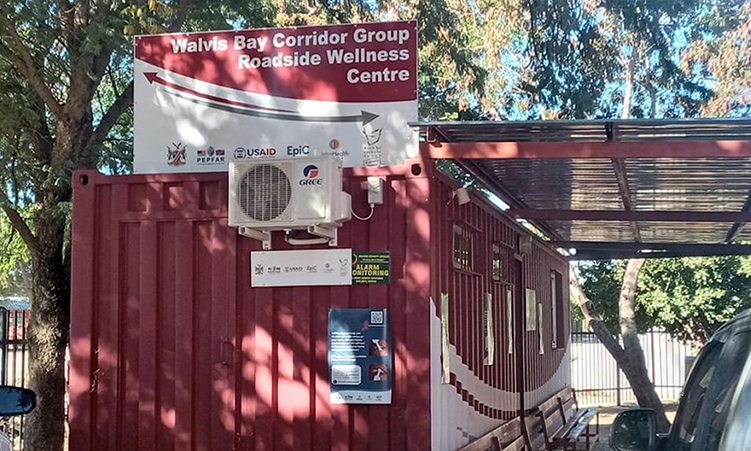The Walvis Bay Corridor Group (WBCG) is set to open roadside wellness clinics along the Walvis Bay-Ndola-Lubumbashi Development Corridor.
These clinics aim to improve access to essential health services for truck drivers, cross-border traders and local communities who rely on these vital trade routes.
This was confirmed in a press statement released by WBCG spokesperson Maria Paulus on Monday.
The roadside clinics will run through the Democratic Republic of the Congo (DRC) (Kasumbalesa Border Post) and Zambia [Kasumbalesa Border Post), as well as in DRC (Lufu Border Post) and Angola (Luvo Border Post).
“The new wellness clinics are a continuation of WBCG’s commitment to safeguarding the health and well-being of all those who work along the corridors, from drivers who navigate long-distance routes to traders and local community members,” the statement reads.
These clinics will provide critical health services, including HIV-AIDS testing, treatment, counselling, primary healthcare and referrals, in addition to information and education on road safety and best health practices
As a key player in the transport and logistics industry within the Southern African Development Community (SADC) region, WBCG plays a crucial role in facilitating the seamless flow of trade and providing targeted health and wellness services.
“The clinics will provide unparalleled health and wellness solutions that transcend geographical boundaries, and we will offer a comprehensive range of health services designed to optimise physical, mental and emotional well-being,” WBCG wellness project manager Edward Shivute says.
According to WBCG chief executive Hippy Tjivikua, the health of drivers and surrounding communities along transport corridors is a top priority for the organisation.
By setting up new wellness clinics, WBCG aims to not only foster economic growth, but also ensure the well-being of everyone who relies on these routes.
These health centres, located at strategic service points such as ports, weighbridges and border crossings, offer free medical care to truck drivers, local communities, sex workers, and other corridor users, regardless of nationality, he says.
“The initiative is made possible through WBCG’s partnerships with SADC, government health ministries, and donor agencies,” Tjivikua says, expressing gratitude to all stakeholders.










